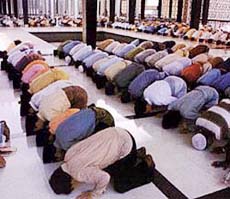 |
| Constipation: Causes and Symptoms |
Chronic constipation is infrequent
bowel movements or difficult passage of stools that persist for several weeks
or longer.
Constipation is generally described as
having fewer than three bowel movements a week.
Though occasional constipation is very
common, some people experience chronic constipation that can interfere with
their ability to go about their daily tasks. Chronic constipation may also
cause people to strain excessively in order to have a bowel movement.
Treatment for chronic constipation
depends in part on the underlying cause. However, in some cases, a cause is
never found.
Symptoms
Signs and symptoms of chronic
constipation include:
- Passing
fewer than three stools a week
- Having
lumpy or hard stools
- Straining
to have bowel movements
- Feeling
as though there's a blockage in your rectum that prevents bowel movements
- Feeling
as though you can't completely empty the stool from your rectum
- Need
help to empty your rectum, such as using your hands to press on your abdomen
and using a finger to remove stool from your rectum
Constipation may be considered chronic
if you've experienced two or more of these symptoms for the last three months.
When to see a doctor
- Make an appointment with your doctor if you experience unexplained and persistent changes in your bowel habits.
Causes
Constipation most
commonly occurs when waste or stool moves too slowly through the digestive
tract or cannot be eliminated effectively from the rectum, which may cause the
stool to become hard and dry. Chronic constipation has many possible causes.
Blockages in the colon or rectum
Blockages in the colon
or rectum may slow or stop stool movement. Causes include:
- Tiny
tears in the skin around the anus (anal fissure)
- A
blockage in the intestines (bowel obstruction)
- Colon
cancer
- Narrowing
of the colon (bowel stricture)
- Other
abdominal cancer that presses on the colon
- Rectal
cancer
- Rectum
bulge through the back wall of the vagina (rectocele)
Problems with the nerves around the colon and rectum
Neurological problems
can affect the nerves that cause muscles in the colon and rectum to contract
and move stool through the intestines. Causes include:
- Damage
to the nerves that control bodily functions (autonomic neuropathy)
- Multiple
sclerosis
- Parkinson's
disease
- Spinal
cord injury
- Stroke
Difficulty with the muscles involved in the elimination
Problems with the
pelvic muscles involved in having a bowel movement may cause chronic
constipation. These problems may include:
- The
inability to relax the pelvic muscles to allow for a bowel movement
(anismus)
- Pelvic
muscles that don't coordinate relaxation and contraction correctly
(dyssynergia)
- Weakened
pelvic muscles
Conditions that affect hormones in the body
Hormones help balance
fluids in your body. Diseases and conditions that upset the balance of hormones
may lead to constipation, including:
- Diabetes
- Overactive
parathyroid gland (hyperparathyroidism)
- Pregnancy
- Underactive
thyroid (hypothyroidism)
Risk factors
Factors that may increase your risk of
chronic constipation include:
- Being
an older adult
- Being
a woman
- Being
dehydrated
- Eating
a diet that's low in fiber
- Getting
little or no physical activity
- Taking
certain medications, including sedatives, opioid pain medications, some
antidepressants, or medications to lower blood pressure
- Having
a mental health condition such as depression or an eating disorder
Complications
Complications of chronic constipation
include:
- Swollen
veins in your anus (hemorrhoids). Straining to have a bowel movement may
cause swelling in the veins in and around your anus.
- Torn
skin in your anus (anal fissure). A large or hard stool can cause tiny
tears in the anus.
- Stool
that can't be expelled (fecal impaction). Chronic
constipation may cause an accumulation of hardened stool that gets stuck
in your intestines.
- Intestine
that protrudes from the anus (rectal prolapse). Straining
to have a bowel movement can cause a small amount of the rectum to stretch
and protrude from the anus.
Prevention
The following can help you avoid
developing chronic constipation.
- Include
plenty of high-fiber foods in your diet, including beans, vegetables,
fruits, whole-grain cereals, and bran.
- Eat
fewer foods with low amounts of fiber such as processed foods, dairy, and meat products.
- Drink
plenty of fluids.
- Stay
as active as possible and try to get regular exercise.
- Try to
manage stress.
- Don't
ignore the urge to pass stool.
- Try to
create a regular schedule for bowel movements, especially after a meal.
- Make
sure children who begin to eat solid foods get plenty of fiber in their
diets.
Diagnosis
In addition to a general physical exam
and a digital rectal exam, doctors use the following tests and procedures to
diagnose chronic constipation and try to find the cause:
- Blood
tests. Your
doctor will look for a systemic condition such as low thyroid
(hypothyroidism) or high calcium levels.
- An
X-ray. An
X-ray can help your doctor determine whether our intestines are blocked
and whether there is stool present throughout the colon.
- Examination
of the rectum and lower, or sigmoid, colon (sigmoidoscopy). In this
procedure, your doctor inserts a lighted, flexible tube into your anus to
examine your rectum and the lower portion of your colon.
- Examination
of the rectum and entire colon (colonoscopy). This
diagnostic procedure allows your doctor to examine the entire colon with a
flexible, camera-equipped tube.
- Evaluation
of anal sphincter muscle function (anorectal manometry). In this
procedure, your doctor inserts a narrow, flexible tube into your anus and
rectum and then inflates a small balloon at the tip of the tube. The
device is then pulled back through the sphincter muscle. This procedure
allows your doctor to measure the coordination of the muscles you use to
move your bowels.
- Evaluation
of anal sphincter muscle speed (balloon expulsion test). Often
used along with anorectal manometry, this test measures the amount of time
it takes for you to push out a balloon that has been filled with water and
placed in your rectum.
- Evaluation
of how well food moves through the colon (colonic transit study). In this
procedure, you may swallow a capsule that contains either a radiopaque
marker or a wireless recording device. The progress of the capsule through
your colon will be recorded over 24 to 48 hours and will be visible on
X-rays.
In some cases, you may eat
radiocarbon-activated food and a special camera will record its progress
(scintigraphy). Your doctor will look for signs of intestinal muscle
dysfunction and how well food moves through your colon.
- An
X-ray of the rectum during defecation (defecography). During
this procedure, your doctor inserts a soft paste made of barium into your
rectum. You then pass the barium paste as you would stool. The barium
shows up on X-rays and may reveal a prolapse or problems with muscle
function and muscle coordination.
- MRI defecography. During
this procedure, as in barium defecography, a doctor will insert contrast
gel into your rectum. You then pass the gel. The MRI scanner can
visualize and assess the function of the defecation muscles. This test
also can diagnose problems that can cause constipation, such as rectocele
or rectal prolapse.
Treatment
Treatment for chronic constipation
usually begins with diet and lifestyle changes meant to increase the speed at
which stool moves through your intestines. If those changes don't help, your
doctor may recommend medications or surgery.
Diet and lifestyle changes
Your doctor may recommend the following
changes to relieve your constipation:
- Increase
your fiber intake. Adding fiber to your diet increases the
weight of your stool and speeds its passage through your intestines.
Slowly begin to eat more fresh fruits and vegetables each day. Choose
whole-grain bread and cereals.
Your doctor may recommend a specific
number of grams of fiber to consume each day. In general, aim for 14 grams of
fiber for every 1,000 calories in your daily diet.
A sudden increase in the amount of
fiber you eat can cause bloating and gas, so start slowly and work your way up
to your goal over a few weeks.
- Exercise
most days of the week. Physical activity increases muscle
activity in your intestines. Try to fit in exercise most days of the week.
If you do not already exercise, talk to your doctor about whether you are
healthy enough to start an exercise program.
- Don't
ignore the urge to have a bowel movement. Take
your time in the bathroom, allowing yourself enough time to have a bowel
movement without distractions and without feeling rushed.
Laxatives
Several types of laxatives exist. Each
works somewhat differently to make it easier to have a bowel movement. The
following are available over the counter:
- Fiber
supplements. Fiber
supplements add bulk to your stool. Bulky stools are softer and easier to
pass. Fiber supplements include psyllium (Metamucil, Konsyl, others),
calcium polycarbophil (FiberCon, Equalactin, others), and methylcellulose
(Citrucel).
- Stimulants. Stimulants
including bisacodyl (Correctol, Dulcolax, others) and sennosides (Senokot,
Ex-Lax, Perdiem) cause your intestines to contract.
- Osmotics. Osmotic
laxatives help stool move through the colon by increasing the secretion of
fluid from the intestines and helping to stimulate bowel movements.
Examples include oral magnesium hydroxide (Phillips' Milk of Magnesia,
Dulcolax Milk of Magnesia, others), magnesium citrate, lactulose (Cholac,
Constilac, others), polyethylene glycol (Miralax, Glycolax).
- Lubricants. Lubricants
such as mineral oil enable stool to move through your colon more easily.
- Stool
softeners. Stool
softeners such as docusate sodium (Colace) and docusate calcium (Surfak)
moisten the stool by drawing water from the intestines.
- Enemas
and suppositories. Tap water enemas with or without
soapsuds can be useful to soften stool and produce a bowel movement.
Glycerin or bisacodyl suppositories also aid in moving stool out of the
body by providing lubrication and stimulation.
Other medications
If over-the-counter medications don't
help your chronic constipation, your doctor may recommend prescription
medication, especially if you have irritable bowel syndrome.
- Medications
that draw water into your intestines. A number of prescription medications are
available to treat chronic constipation. Lubiprostone (Amitiza),
linaclotide (Linzess), and plecanatide (Trulance) work by drawing water
into your intestines and speeding up the movement of stool.
- Serotonin
5-hydroxytryptamine 4 receptors. Prucalopride (Motegrity) helps move
stool through the colon.
- Peripherally
acting mu-opioid receptor antagonists (PAMORAs). If
constipation is caused by opioid pain medications, PAMORAs such
as naloxegol (Movantik) and methylnaltrexone (Relistor) reverse the effect
of opioids on the intestine to keep the bowel moving.
Training your pelvic muscles
Biofeedback training involves working
with a therapist who uses devices to help you learn to relax and tighten the
muscles in your pelvis. Relaxing your pelvic floor muscles at the right time
during defecation can help you pass stool more easily.
During a biofeedback session, a special
tube (catheter) to measure muscle tension is inserted into your rectum. The
therapist guides you through exercises to alternately relax and tighten your
pelvic muscles. A machine will gauge your muscle tension and use sounds or
lights to help you understand when you've relaxed your muscles.
Surgery
Surgery may be an option if you have
tried other treatments and your chronic constipation is caused by a blockage,
rectocele, or stricture.
For people who have tried other
treatments without success and who have abnormally slow movement of stool
through the colon, surgical removal of part of the colon may be an option.
Surgery to remove the entire colon is rarely necessary.
Alternative medicine
Many people use alternative and
complementary medicine to treat constipation, but these approaches have not
been well-studied. Researchers currently are evaluating the usefulness of
acupuncture.
( Keywords )



Post a Comment